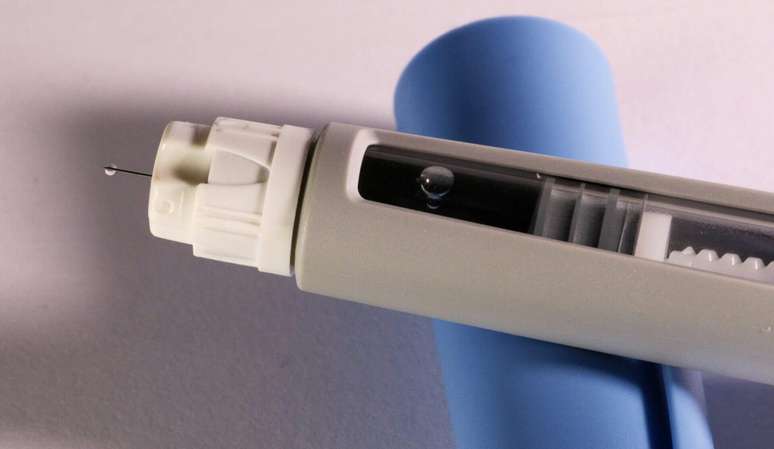Léo, son of Marília Mendonça, has been diagnosed with type 1 diabetes. The child’s grandmother says it is the result of the boy’s longing for his mother
Singer Marília Mendonça’s mother, Ruth Dias, recently revealed that her grandson, Léo, developed type 1 diabetes after his mother’s death. According to her, the cause of the painting would have been emotional in origin, due to the nostalgia that the child feels.

As per Dr. Fadlo Fraige Filho, an endocrinologist and president of the National Association for Diabetes Care (ANAD), emotional factors do not cause diabetes, but they can trigger the disease. “We know that several autoimmune diseases are triggered by violent stress, as in the case of the boy. This involves the development of antibodies against insulin-producing cells in the pancreas, through this autoimmune process, which characterizes the development of type 1 diabetes” , He explains.
According to the doctor, there are other causes that can lead to this autoimmune process, which is still not clear. The psychoanalyst Dr. Andrea Ladislau agrees. “Also because chronic diseases are not caused by emotional factors, this is a myth. However, emotional factors can aggravate, accelerate or intensify the symptoms of chronic diseases”, clarifies the specialist.
Psychosomatics: how mental health is reflected in the body
The psychoanalyst explains that this has to do with psychosomatics, that is, the production of our body’s hormones, the response that neurotransmitters bring us, and how this is reflected from the mind to the body. “That is, anything that I can’t fix in my mind can somehow be reflected in my body through the disease, as a signal that it’s wrong,” he says.
These messages from the mind are sent to the body, which will get worse especially if the person has, for example, an autoimmune disease, which is the result of genetic problems. “Emotional factors will aggravate your symptoms, make these diseases more and more chronic, and affect this individual more and more,” she points out.
Andrea explains that it is relatively common for children under emotional stress to develop some aspects related to biological diseases. “Certain reflexes in your body that can show something is wrong,” she says. She mentions, for example, the appearance of urticaria (itching), rosacea, tics, “restless hands” or a lot of repetition of words. According to the psychoanalyst, all this is a sign that something is not in balance in the child’s emotions and needs more attention.
For dr. Fadlo, psychotherapy is the best form of treatment – or not of emotional problems. “It is important to seek the help of a professional, especially a child psychologist, or sometimes even a neuropediatrician, so that a proper investigation can be carried out, so that some tests can be performed to identify what the problem may be with the child” Andrew reinforces. She cautions that treatment should begin as soon as the parents notice something is wrong with the child’s behavior, in order to avoid future emotional disturbances.
type 1 diabetes
In addition to emotional problems, little Léo, son of Marília Mendonça, will also have to live with type 1 diabetes for the rest of his life, a subtype that affects 5% of all diabetic patients and is irreversible, explains Dr. do it. According to the endocrinologist, some symptoms indicate type 1 diabetes in children, they are:
- Drink plenty of water;
- Urinating a lot;
- Fast weight loss;
- Dehydration.
“Without timely treatment, it can lead to a diabetic coma. That’s why the child needs quick treatment and proper care,” she warns.
According to the doctor, the cure should be done by replacing what the healthy pancreas would do naturally, i.e. the injection of insulin. Nowadays we have insulins that mimic what a normal pancreas does. So we have basal insulins, which cover 24 hours, and we have ultra-rapid insulins, which exactly cover the increase in blood sugar after eating. These insulins are applied before meals, usually breakfast, lunch and dinner,” he explains.
The practitioner points out that there are now a number of improvements that make type 1 diabetes treatment more comfortable for the patient. To avoid continuous insulin spikes, for example, Léo can use a continuous insulin infusion system. “Of course, nutrition is essential, as is physical exercise”, underlines the expert.
Source: Terra
Ben Stock is a lifestyle journalist and author at Gossipify. He writes about topics such as health, wellness, travel, food and home decor. He provides practical advice and inspiration to improve well-being, keeps readers up to date with latest lifestyle news and trends, known for his engaging writing style, in-depth analysis and unique perspectives.






![Such a wonderful sun in advance: Summary of the episode on August 21, 2025 [SPOILERS] Such a wonderful sun in advance: Summary of the episode on August 21, 2025 [SPOILERS]](https://fr.web.img5.acsta.net/img/d3/05/d305bc2e988868b047486aa1f425d806.jpg)
